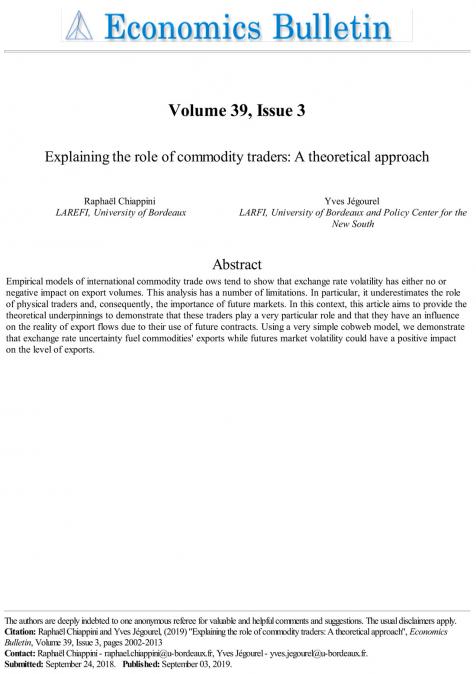Publications /
Paper in Academic Journals
Empirical models of international commodity trade ows tend to show that exchange rate volatility has either no or negative impact on export volumes. This analysis has a number of limitations. In particular, it underestimates the role of physical traders and, consequently, the importance of future markets. In this context, this article aims to provide the theoretical underpinnings to demonstrate that these traders play a very particular role and that they have an influence on the reality of export flows due to their use of future contracts. Using a very simple cobweb model, we demonstrate that exchange rate uncertainty fuel commodities' exports while futures market volatility could have a positive impact on the level of exports.












